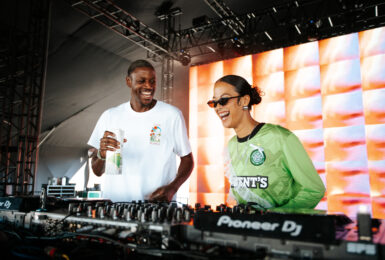Race
we should fight white supremacy everywhere we see it, but black people are not mules
Earlier this week, United Airlines was caught up in a maelstrom of controversy after they had a passenger forcibly dragged off an over-booked plane. When no one agreed to voluntarily give up their seat, a computer system was used to choose four passengers at random to be removed from the flight. Among them was Dr. David Dao, whose removal was filmed and went viral after many agreed the violence captured–which a lawyer said caused a concussion and lost teeth–went far beyond what was called for.
Another passenger told CNN they overhead Dr. Dao saying he was being profiled for being Chinese, and many agreed that a white man–or especially a white woman–would never have been treated in such an abusive manner or faced the thirst for justification that occured afterward. Chinese media drew attention to an online petition titled “#ChineseLivesMatter” which called for a federal investigation into the incident.
Some took their racial grievances a step further, with one user asking, “Why [didn’t United] randomly choose a black person?” in a post attracting 1,294 likes, implying an Asian person was an easier target than someone who was Black.
Though it’s true that white violence affects non-Black people of color in ways that are often under-explored, what is equally under-explored is how consistently the response to this injustice is redirected toward Black people who have no hand in creating it. When the #OscarsSoWhite controversy erupted last year and Chris Rock took the stage to mention the lack of Black actors being recognized, non-Black viewers of color attacked him for not mentioning the exclusion of other people of color. In response, activist and writer Mikki Kendall created the hashtag #NotYourMule, highlighting how Black people are always asked to use the few or nonexistent platforms they have to fight on behalf of others who have unaddressed issues of anti-Blackness of their own. “I don’t believe solidarity can be a one-way street,” Kendall explained.
Aside from misidentifying the hypervisibility of Black pain as a privilege, many people who criticize Black folks for not playing their role in the struggles of others always fail to recognize the many ways in which Black people’s blood, labor, and bodies are already consistently used.
The Blood
Last year, Delta Airlines was caught up in a similar controversy when they dragged a Black woman off a plane for “refus(ing) to comply with boarding and baggage check procedures.” I cannot blame those complaining about Black people not showing up for not knowing about this incident, because they were the ones who didn’t show up then to witness it. The story quickly and quietly blew over.
The Labor
There remains an entrenched yet ahistorical idea that Black folks in general have a problem with solidarity. Even on a surface level, Black media platforms were at the forefront of both spreading and unpacking the racial element of the United incident, as is often the case for the racialized injustices non-Black people face. Historically, Black movements have gone out of their way to reach across color lines, such as Black Lives Matter platforms explicitly mentioning Palestine and Indigenous struggles, for example.
The Bodies
What (mis)appropriating the #BlackLivesMatter hashtag into #ChineseLivesMatter ignores is that the lives of Black people are made not to matter in a very specific way–by white people and non-Black people of color alike. How Black blood and labor are used without acknowledgement, to speak of reciprocity, illuminates the way “Black people” are made to become lifeless “Black bodies” for the use and commodification of others. These are bodies presented as beastlike, hypersexual, criminal, and lacking consciousness, in contrast with the non-Black human, modest, and moral living being. This is the particular necessity of #BlackLivesMatter that is ignored when the hashtag is co-opted, just as it is when another Black child is shot down on the street.
Unfortunately, this timeless tale of Black mule-making leads many Black folks to become jaded about what a real united front against whiteness could look like. In reality, a mass movement is necessary, but Black liberation will never be achieved by finding solidarity with anti-Black communities. Knowing this, some Black people have taken up a “they don’t care about me, so I won’t care about them” philosophy that is, I think, completely understandable, but misguided.
Ultimately, the same white violence that harmed Dao will rain most detrimentally down on Black and blackened Asians at the intersections of this conversation. If we are to have fully reciprocal relationships with non-Black people, we need to always re-center those at the interesections who experience both the violence of anti-Blackness in the non-Black communities they are apart of as well as the violence against that community. Without recognizing that there are Black people in every community, experiencing a very specific type of dehumanization, we will never be able to unpack the full scope of the violence of whiteness we all face.
*Hari Ziyad is a New York based storyteller and writer for AFROPUNK. They are also the editor-in-chief of RaceBaitR, deputy editor of Black Youth Project, and assistant editor of Vinyl Poetry & Prose. You can follow them on Twitter @hariziyad.
Get The Latest
Signup for the AFROPUNK newsletter





